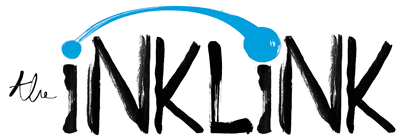How to advocate changes in farming practices? A Senegalese experience
The NGO Solthis is involved in the One Health approach to healthcare. This concept, launched in the early 2000s, asserts that health must be global, taking into account the health of humans, animals and the environment. Within this context, Solthis has joined forces with AVSF (Agronomes et Vétérinaires Sans Frontières) and Casades (a local NGO) to carry out a project in Vélingara, in Senegal.
Noticing harmful agricultural practices to global health (overuse of dangerous and poorly regulated pesticides), this consortium proposed that The Ink Link intervened to encourage farmers to change their practices.

Initially, we were commissioned to create materials to encourage farmers to wear PPE (personal protective equipment - a large plastic suit, boots, gloves and mask). These PPEs, sold at cost price by the cotton production company, turned out to be ill-suited to the local situation:
- The plastic suits are too hot under the Senegalese sun;
- Despite their low cost, this equipment has a cost and isn't replaced often enough. The farmer may even tend to put it away at home when there are chemicals on it, which encourages further contamination;
- After several days of interviews, we learned that it is traditional to walk barefoot in the field... The recommendations to wear boots are therefore inappropriate.
For The Ink Link, the proposal to work on wearing PPE was therefore unsuitable. We offered another intervention to encourage people to change their farming practices.


Focus groups were organized with local residents to gather their perceptions of pesticides. Here are the findings:
The link between pesticides and certain illnesses/pathologies that occur a long time later (cancers, infertility) is complicated. In terms of health, what people associate with pesticides is foot ache. An exploration of the subject with a doctor involved in the project did not clearly identify what this was, but it is very widely mentioned.
The causes of illness are not explained biologically, but often in a traditional context (spirits, evil spells...). But there is still the idea of foods that make you stronger or weaker.
Projecting into the future is very difficult. If you don't know what you'll eat tomorrow, how can you think about what you'll do in several years' time? Proposals to change agriculture for a hypothetical well-being in several years' time are therefore difficult.
These findings led us to rethink the tools, focusing on helping people project into the future and be able to understand the link between pesticides and disease.
In addition to this, visits and interviews in the villages showed that decisions had to be taken in groups, so we wanted to give priority to a collaborative tool.
Finally, in line with its values, The Ink Link wanted a tool that would enable empowerment - in this case, giving people the keys to understanding the subject and enabling them to make choices for themselves.
To create the tool, we brought in Rémi Leroy, an artist who has lived in Africa for several years and knows the landscapes and cultures very well. His realistic style was also attractive to the people of Vélingara.
The tool created is animated locally by community agents.
A group of villagers is brought together, and four of them receive :
- A scenario booklet: each booklet is different and covers the different stages of an agricultural season;
- A sum of money in counterfeit paper bills: to enable them to virtually buy the inputs they need for the agricultural season;
- Tokens representing their health capital: the more you have, the healthier you are.
After explaining the rules, the host asks the four virtual farmers to look at the first page of their booklet. Each step is the same for everyone (find seeds/prepare your field/plant...), but with different options, more or less consuming chemical inputs.
They have to solve the actions:
- Pay if necessary to buy inputs,
- Lose health tokens if necessary,
- Gain hardship tokens if necessary. We felt it was important to take this dimension into account. Cultivating a field organically is more laborious (weeding by hand instead of using herbicides, preparing homemade fertilizer, etc.).


At the end of the activity (the end of the farming season), each participant finds himself with a very different account of money, hardship tokens and health tokens.
The facilitator then launches a debate so that everyone can react to what they have observed, including the other villagers who were observers. Then he broadens the debate: "What is the most harmful thing to health that you could avoid? What would you be prepared to implement next season? Who would be willing to commit to this?"
This final discussion is a crucial element of the activity and may require a little training for the animators.
This activity can be paired with other technical activities on agricultural practices.










